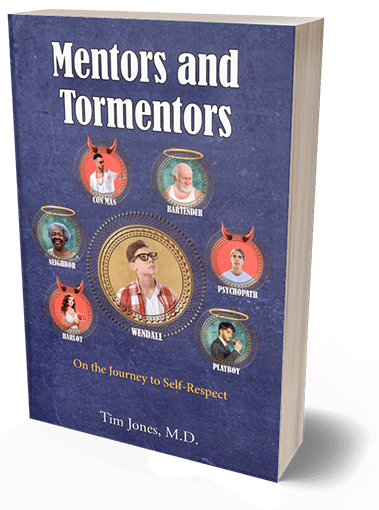The Origin of Happiness
What is happiness? Happiness is an emotion – nothing more and nothing less. Scientifically speaking, all emotions originate from specific chemical reactions and electrical impulses in our brains. Okay. But the million-dollar question is: What triggers the chemistry and electricity between our ears that we experience as happiness?
The obvious answer is that we are happy when good things happen, or when people are good to us. But this simple explanation is not completely accurate. How else do we explain why some people are extremely unhappy even after something very good happens to them? For example, an artist enters his painting in the state fair and places second. Never mind that there were a thousand other entrants, and he placed better than 998 of them. Why the long face? Well, our runner-up was not the first place, blue ribbon, grand champion. Meanwhile, another painter was overjoyed and could not stop smiling or waving her honorable mention ribbon, which was one of ten awarded in the contest. Another curious example of unhappiness occurred at a children’s birthday party. The mother of one child mistakenly told him that all the children at his friend’s party would receive a basket of candy. Instead, the children each received a king-sized chocolate bar. The boy promptly threw a tantrum and the giant chocolate bar on the floor. Meanwhile, another child, who wasn’t expecting any candy, was beaming with happiness over his candy bar. He even did a little dance. What is going on here? Obviously, the second-place painter and the tantrum child had unfulfilled expectations – even though they experienced the same or similar “good things” as the smiling honorable mention winner and the dancing child.
Therefore, it’s not enough that situations and people are good to us. They must be “good enough” to meet or exceed our expectations. Exactly what qualifies as “good enough” depends on our individual expectations and our interpretation of how well those expectations have been met. If our expectations are exceeded, then we are happy. If they are not, we are sad, disappointed, or even angry. If our expectations are simply met, we are satisfied and neither happy or sad.
Successful businesses from mom-and-pop stores to multi-national corporations are well aware of the origin of happiness. They strive to first discover and then exceed their customers’ expectations, because they recognize the following truths:
- Meet the customer’s expectations – he/she is satisfied.
- Exceed the customer’s expectations – he/she is happy.
- Greatly exceed the customer’s expectations – he/she is very happy and a loyal customer.
Parents instinctively understand this law of human behavior. How often do you hear them say, “Oh, don’t tell the kids we might get ice cream after the game. I don’t want to get their hopes up in case we don’t have time.”
Because we all know that if the kids expect, or even anticipate the possibility of receiving, some ice cream, they will be unhappy if there is no ice cream. Therefore, experienced parents won’t place that expectation in their minds – just in case.
The key point is: All of us have the power to decide when we will trigger our brain’s chemistry and electricity to be happy. We could do this by choosing our expectations and then interpreting whether or not those expectations are being met. Often, however, this process is automatic. We don’t give it a thought. We simply react to our world with pre-determined expectations in all areas of our lives.
Now that we know what stimulates the happiness cascade in our minds, how can we use that information to our benefit? Should everyone simply lower all their expectations to zero? After all, we cannot be upset if we weren’t expecting anything to begin with. Is this a brilliant idea and the key to consistent happiness? Or is it a really stupid strategy that will lead to disaster? We will explore Zero Expectations and Perfect Expectations in the next Happiness Segment.
